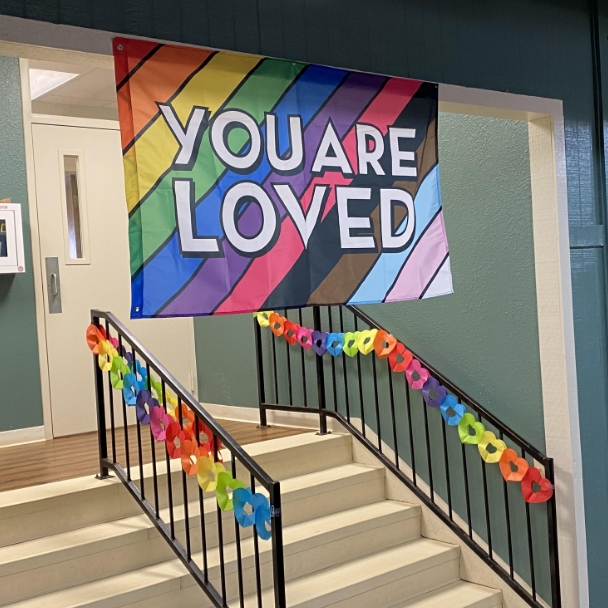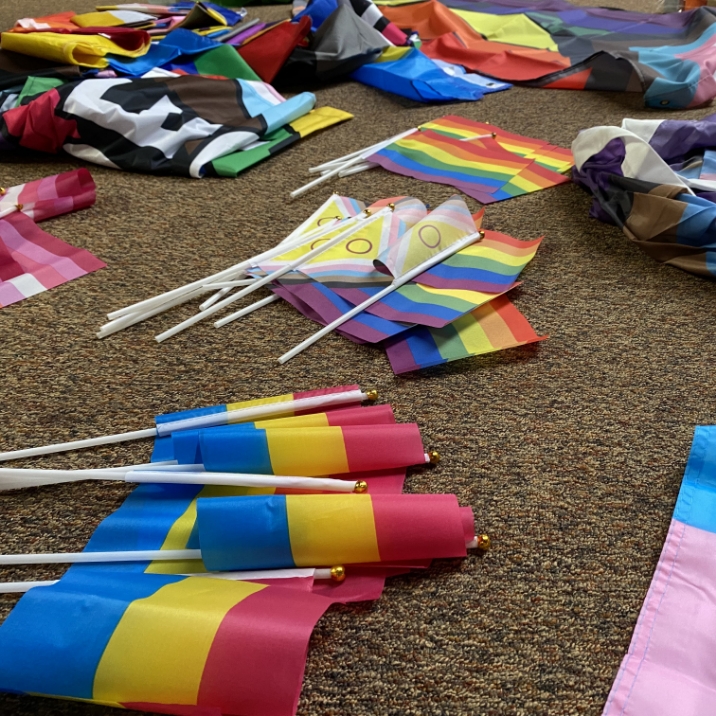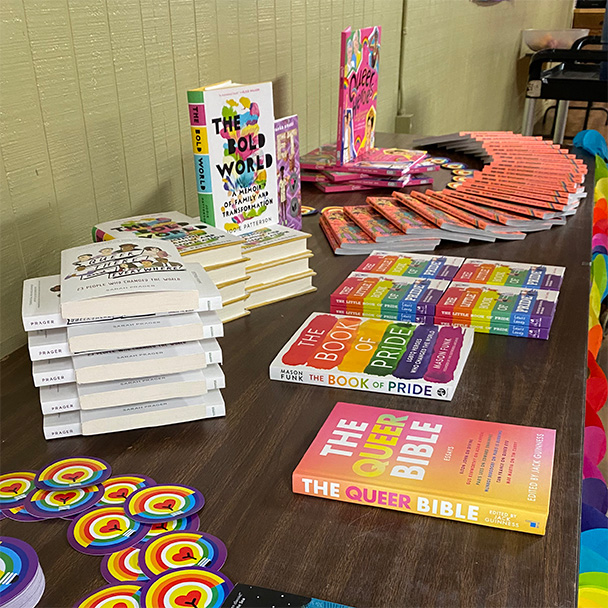A Kin*dom for Everyone
When Pepa Paniagua felt called to a job that didn’t exist, she set about creating it. What resulted was the “kin∙dom community,” a new approach to a term adopted nearly 40 years ago.
An ecumenical partnership between the ELCA Northern Texas-Northern Louisiana Synod and the Presbyterian Church (USA), the kin∙dom community says its mission is to be “an intentional, brave space for all people to explore and cultivate spirituality.” The community is committed to inclusion, integration and love and to affirming all gender identities and sexual orientations.
The word “kin-dom” was coined in the 1980s by theologian Ada Maria Isasi-Diaz as part of an effort to remove patriarchal terminology from the language of faith.
The 2-year-old community operates under the direction of Paniagua, who is a Presbyterian pastor, and a board that includes Irma Bañales, the synod’s director for evangelical mission. In addition to the synod, kin∙dom community is supported by partnerships with Melissa United Methodist Church, Grace Presbytery and the Presbyterian Church (U.S.A.) movement 1001 New Worshiping Communities.
At this point in its evolution the community is united largely through the content and resources members access from its website. But this summer the community branched out to host its first kin∙dom camp and provide LGBTQIA+ youth with a week of affirmation, celebration and fun.
Funded in part through Mission Support and a $10,000 grant from the synod’s mission endowment, the camp included a faith component but no faith expectation—a specific goal was that neither type of belief nor lack of belief would discourage participation.
Paniagua, who grew up in the San Francisco Bay Area as a “cradle Presbyterian,” has spent most of the past two decades in Texas. Following seminary studies in Austin, she served a postgraduate residency in the Dallas-Fort Worth area and since 2008 has been a pastor in northern Texas, where she lives with her wife, Kelli.

By April 2019 she was exploring possibilities with 1001 New Worshiping Communities, which helps pastors create and execute novel initiatives. By the following year, Paniagua was ready “to stop talking about it and start doing it. The goal was to be in restaurants or bars or other community spaces. In this part of the country people have suffered a significant amount of religious trauma.”
After four kin∙dom community meetings the pandemic struck, forcing the group into a Zoom format. Ultimately community members decided they didn’t want one more aspect of their lives happening via teleconference, so kin∙dom was reconfigured as a creator and curator of video and other content that members can access as best fits their schedules.
This content includes the “kin∙dom conversations,” co-hosted by Paniagua and her friend Brad Holley. A heterosexual, cisgender atheist, Holley was part of the community from the beginning, when meetings were billed as “TAP at Tupps” (Theology and Pints at Tupps Brewery).

“I feel like there are two divided factions of Christianity,” Holley said. “One side is following a very traditional, judgy, harmful path, and then there’s this other side, which is much more progressive and modern, and trying to be accepting and loving and welcoming, and trying to make amends for its past.
“I’d like to encourage Christians to weigh the two options, and if I can help that better, more loving and compassionate and tolerant side win out, I’m happy to help out toward that end.”
McKinney, Texas, home to Tupps Brewery, is also home to kin∙dom board member Corey Wallis, who was born and raised there in a Southern Baptist environment.
Now a communications specialist for Trinity Presbyterian Church in McKinney and a student at Brite Divinity School in Fort Worth, Wallis got involved with kin∙dom to use her “privilege” to “invest in places that are safe and warm and welcoming.”

Bañales said her hope is that kin∙dom will inspire other synods, as well as Lutheran congregations and congregations of other faiths, to begin or strengthen similar paths of inclusiveness.
“I hope they will reflect and think and pray and realize that this is what we are called to do,” she said. “That’s my hope for what will result from this community that’s doing outreach for those who feel they don’t have a church, those who feel God has forgotten about them.”
